From Research to Practice: How Can Research Improve Culturally Relevant Educational Practices and Policies in Schools and Classrooms?
Dr. E. Sybil Durand, Dr. Ersula Ore, Dr. Melanie Bertrand, Dr. Alex Estrella-Bridges, Dr. Lauren Katzman, and Dr. Carrie Sampson
This panel will offer an overview of some of the latest research from nationally-renown faculty from Arizona-based universities. These faculty will address how their research can inform practices to improve educational equity for minoritized youth and their families. These faculty’s work includes expertise in the following areas:
(1) teaching culturally relevant young adult literature;
(2) making contemporary connections to African American history;
(3) engaging youth in research to address systemic racism;
(4) literacy development focused on linguistically and culturally diverse classrooms; and
(5) developing inclusive practices for special education services that also challenge the disproportionality of culturally and linguistically diverse student populations who are identified for special education.
During the first half of the panel, faculty will share a brief description of their scholarship and its relevance to the Teacher Leadership Summit. The second half of the panel will be interactive and allow for questions from the audience.
Panelists
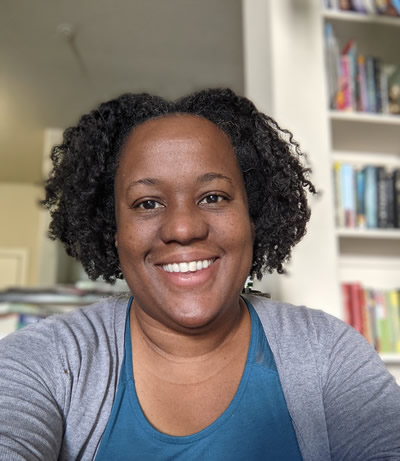
Dr. E. Sybil Durand
https://asu.academia.edu/ESybilDurand
E. Sybil Durand is an associate professor in English education in the Department of English at Arizona State University, where she teaches courses on young adult literature, methods of teaching English Language Arts, and methods of conducting research. Her scholarship focuses on representations of youth of color in young adult literature, including multicultural, international, and postcolonial young adult texts, and how teachers and students engage such narratives. Her most recent grant-funded study examined how middle school students engaged young adult literature in the context of a Youth Participatory Action Research after-school program.
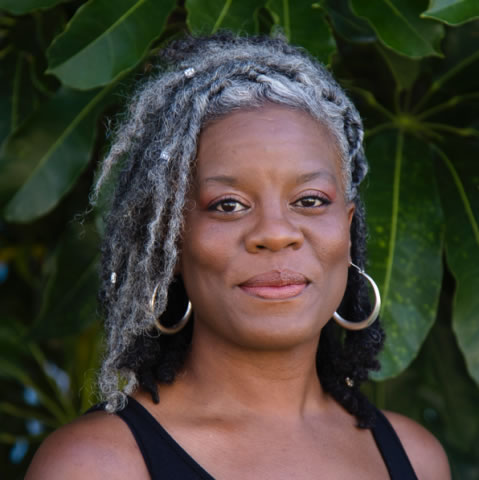
Dr. Ersula Ore
https://isearch.asu.edu/profile/1751324
Ersula J. Ore is an associate professor of African and African American studies and rhetoric at Arizona State University. Her work examines the suasive strategies of aggrieved communities as they operate within a post-emancipation historical context. Her book "Lynching: Violence, Rhetoric, and American Identity" (University of Mississippi Press, 2019), Winner of the 2020 Rhetoric Society of America Book Award, explores lynching as a racialized practice of civic engagement that has, from the 1880s onward, communicated the meanings and boundaries of citizenship in the U.S. The book gives particular attention to the civic roots of lynching, the relationship between lynching and white constitutionalism, and contemporary manifestations of lynching discourse and logic today.
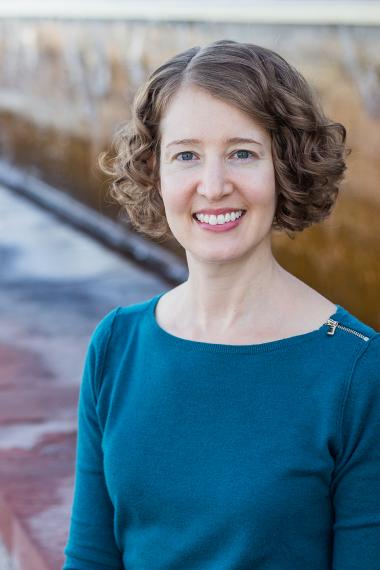
Dr. Melanie Bertrand
https://coe.arizona.edu/person/melanie-bertrand
Melanie Bertrand is an associate professor in the Department of Educational Policy Studies & Practice at the University of Arizona and a former K-5 teacher. Her research explores the potential of youth and community leadership to improve schools and challenge systemic racism and other forms of oppression in education. Her work pushes the educational leadership field to include youth--especially youth of color and other youth facing injustice--in expanded conceptions of leadership.
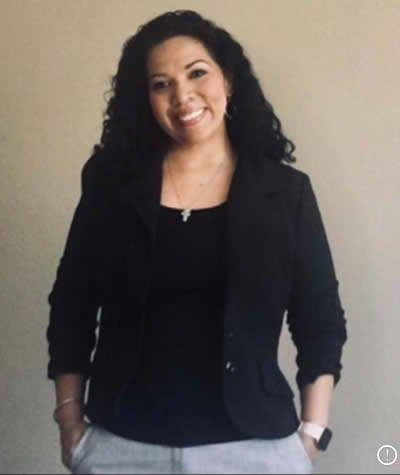
Dr. Alex Estrella-Bridges
https://isearch.asu.edu/profile/96372
Alexandria Estrella-Bridges research interests involve literacy development among students from non-dominant communities and English learners. She is highly interested in aspects of policy and classroom practices that impact the experiences of culturally and linguistically diverse students in school. She is a clinical associate professor within the Elementary Multilingual Education Program at Mary Lou Fulton Teachers College and currently conducting research connected to race and language, language ideologies, and classroom language practices.
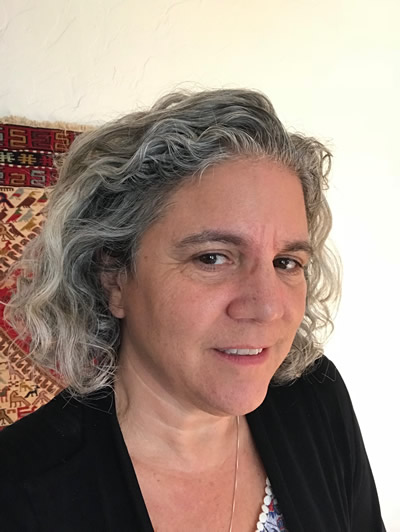
Dr. Lauren Katzman
https://www.urbancollaborative.org
Lauren Katzman, EdD. is the Executive Director of the Urban Collaborative and Associate Research Professor at Arizona State University. She is also an adjunct professor at the Harvard Graduate School of Education. Prior to this work, she served as the Assistant to the Superintendent for Special Education Services for the Newark Public Schools and the Executive Director of Special Education in the New York City Department of Education. In both of these positions, she developed and led significant reform efforts, increasing academic achievement, inclusive educational and experiential options, reliable data management, and statutory/regulatory compliance. She worked to develop strong interdisciplinary partnerships between districts, states, universities, advocacy groups, and communities to build the foundation for deep and sustaining systemic reforms. Dr. Katzman has also served as Associate Professor of Special Education at Boston University and co-authored the book Effective Inclusive Schools: Effective Inclusive Schools: Designing Successful Schoolwide Programs. She was a special education teacher for 14 years and has conducted program evaluations of the special education services for school districts across the country.
Panelists Facilitator
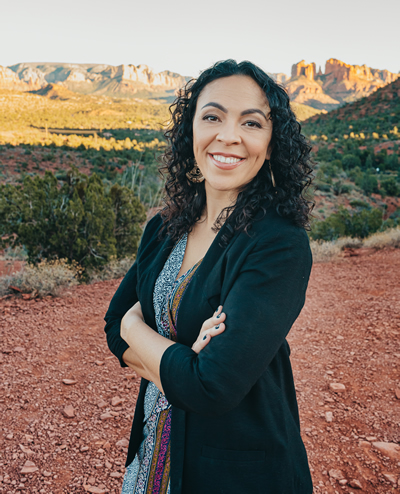
Dr. Carrie Sampson
https://education.asu.edu/about/people/carrie-sampson
Carrie Sampson is an associate professor in the Division of Educational Leadership and Innovation at Mary Lou Fulton Teachers College, Arizona State University. Her scholarship focuses on how educational leadership and policymaking at the K-12 level influences equity and social justice for minoritized youth and their families. Dr. Sampson has conducted research on school desegregation policies. Her most recent line of research is centered at the school district level with an emphasis on governance, particularly the role of school boards, community advocacy, decentralization, and school choice policies.
The Arizona School Safety Panel
State Senator Martín J. Quezada, Carmen Trujillo, Max Goshert, Gail Q. Knight, Latasha Hampton , and Dr. Anthony J. Perkins
Governing Board members and concerned stakeholders will discuss school safety concerns, policies that can be implemented to increase campus security, and share starting points for districts to create a well-executed comprehensive Model School Safety Plan that will assure students, staff, and parents that they are safe at school. Please join us for this important conversation that will help you get your school/district safety needs met. Simply put, a safe school is a great school.
Panelists
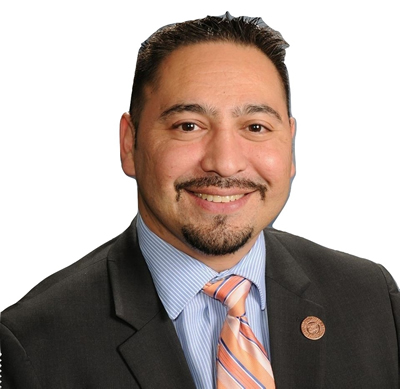
State Senator Martín J. Quezada
State Senator Martín Quezada is widely considered one of the most passionate, reliable and impactful advocates for progressive values in the State Legislature. He is a product of AZ’s public schools and as a professional, he’s served as a judicial law clerk on the AZ Court of Appeals, a research analyst in the State Legislature, as an attorney, and teaching courses at the ASU College of Law. Senator Quezada’s has a long track record of community activism, serving in numerous volunteer roles. But Senator Quezada’s most impactful service has been as an elected official. He was elected to the Pendergast School Board in 2010 and was re-elected in 2014 and 2018. He was appointed to the AZ State House of Representatives in 2012 and was elected to that seat later that year. In 2014, he was elected to the AZ State Senate and was re-elected in 2016, 2018 and 2020 and now serves in Leadership as the Democratic Whip. Senator Quezada is now running a historic campaign to be the first Latino State Treasurer in AZ history.
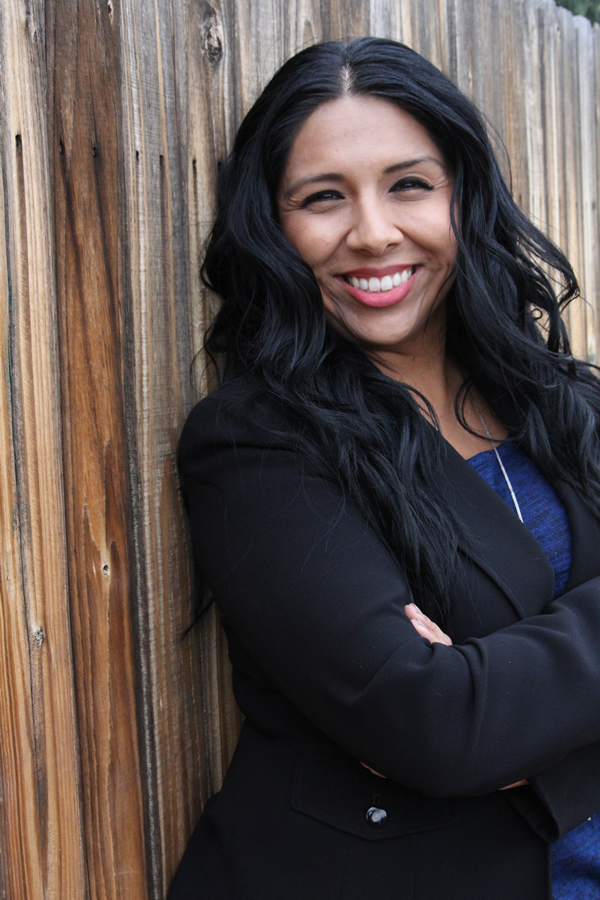
Carmen Trujillo
Governing Board President, Phoenix Elementary School District
Carmen grew up in Phoenix’s Garfield and Goldengate neighborhoods. She currently serves as the Board President of Phoenix Elementary School District #1 and was elected in 2018 to serve. She is a graduate of ASU's Watts College with Bachelor of Science degrees in Public Policy and Criminal Justice. Over her years of both professional experience and volunteer service Carmen has consistently advocated for marginalized people, supporting working class Arizonans on multi-disciplinary teams with sometimes little or no family. Her experience comes from working with the Division of Developmental Disabilities for the State of AZ. Carmen serves both children and adults living with one or more developmental disabilities who are also diagnosed with behavioral health needs. As part of a growing movement of non-traditional elected officials, Carmen was invited to participate in the New American Leaders program in 2018 and an All in Education program in 2021. Both leadership trainings were created to increase participation in our democracy by empowering non-typical candidates, more specifically people of color to serve as elected officials representative of their communities.
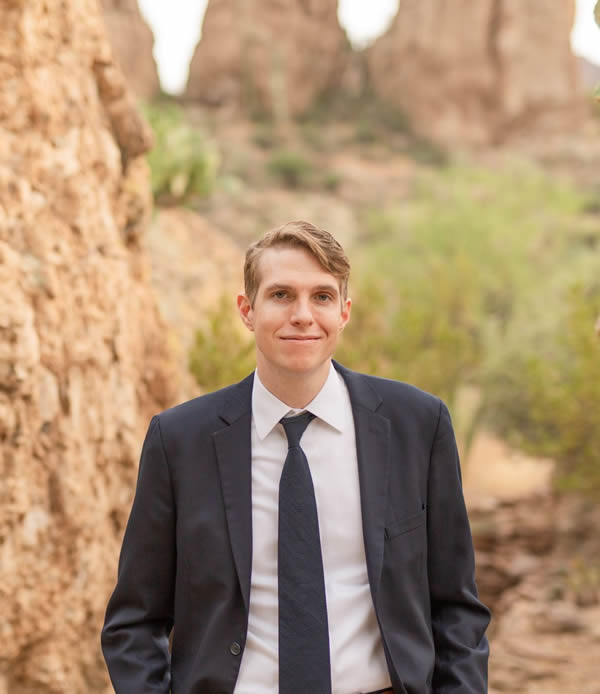
Max Goshert
Director, Enterprise Policy Analysis Group Arizona State University
Max Goshert serves as the director of the Enterprise Policy Analysis Group at Arizona State University. He also serves as the associate director of the non-partisan think tank the Grand Canyon Institute. Max was active in the Paradise Valley Unified School District from 2018–2021, leading the community engagement efforts for the PAC supporting the 2019 bond and override measures, serving on the legislative affairs committee, and running for the district governing board. Max holds a Master's in Public Policy from ASU and a Bachelor's in Marketing from the University of Arizona.
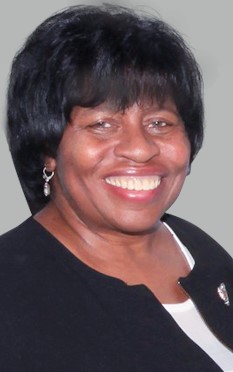
Gail Q. Knight
Governing Board President, Balsz Elementary School District
Gail was born and raised in Washington, D.C. by a family of advocates and philanthropists for education, social justice, civil and human rights. She is influenced by the advocacy of family leaders, the late Rev. Dr. Martin Luther King, the late Supreme Court Justice Thurgood Marshall, and the late Mary McCleod Bethune. Gail holds a Bachelors's and Master’s degree in Business, Public Administration, and Organizational Management. She has served on the Balsz School District Governing Board since 2012 and has currently served as Governing Board President since January 2021. Her accomplishments and awards as an advocate on public education issues from Washington, D.C., to the States of Maryland, Virginia, California, and Arizona have focused on equal access for African American students to academic opportunities, equity in student placement, parent involvement and an increase in funding for teachers. She is the widow of the late Leonard G. Knight and mother of three successful adult children that attended public schools in Washington, D.C., San Diego, California, and Phoenix, Arizona, and hold Doctorate and Master's Degrees.
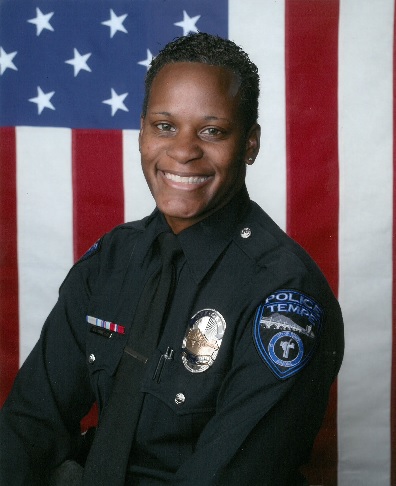
Latasha Hampton
President, Arizona Black Law Enforcement Employees (ABLE)
Latasha Hampton began her law enforcement career with the Tempe Police Department after being honorably discharged from the U.S Army in July 2001. While in the U.S. Army Latasha was a Military Intelligence Officer and her last duty assignment was as the Executive Officer of a training company in Fort Huachuca, AZ. Latasha has been a Police Officer for over 20 years and has worked as a Patrol Officer, Juvenile Detective (School Resource Officer), Field Training Officer and a Patrol Sergeant. For four years of her police career, Latasha worked with youth as PD Explorer Advisor helping them learn more about police work and preparing them for a career in the law enforcement field. Latasha holds a Bachelor of Arts in Sociology from the University of Iowa. She is currently enrolled in the Post Baccalaureate teaching program at Rio Salado College enabling her to become certified secondary education teacher in Arizona upon completion. In December 2021, Latasha became the president of the Arizona Black Law Enforcement Employees (ABLE) organization. As the new President she has worked with her Board Members to establish the three pillars of ABLE. One of the pillars is to increase Community Engagement with a focus on working with youth in the community. Through her work as a Police Officer and as the President of ABLE she has been committed to improving relationship between the police and the community they serve. Latasha is the proud mother of 8-year-old twin girls, and they are the light of her life.
Panelists Facilitator
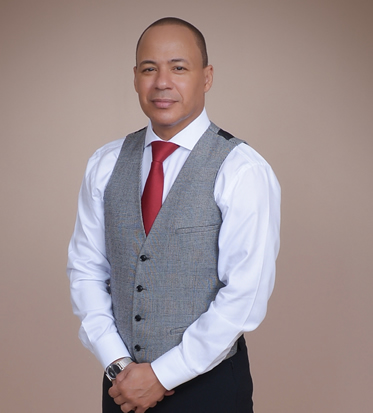
Dr. Anthony J. Perkins
Retired Superintendent/CEO Perkup, LLC
Dr. Anthony J. Perkins is an educational expert and leader, author, CEO, and podcast host. He has served as an educational leader for three decades in the capacity of school teacher, vice principal, principal, district director, school district superintendent, and university professor. He holds a master’s degree in education with an emphasis on diverse learners and a doctoral degree in educational leadership. Books he has authored are: I Against I, Make Leadership COUNT, Leadership: Wild, Wonderful, and Perfectly in Process, The Principle of Moments, P3 — Purpose, Pride, and Progress, and Can’t Lose. He is the CEO of Perkup, LLC, which concentrates on inspirational speaking, organizational training, and mindset coaching. He led Magnet Traditional School to an A+ School status, created high performance school cultures, and is a mentor for career/college adults and K-12 students. Dr. Perkins is the host of the BE BETTER PODCAST on Spotify. The podcast shares knowledge from fascinating people to pop culture.
How the Legislature Makes or Breaks AZ Schools
Senator Christine Marsh, Senator Rebecca Rios, State Senator Martín J. Quezada, and Beth Lewis
In Arizona, 90 lawmakers decide the fate of 1.1 million students in 2400 schools across the state. These lawmakers set the budget for school spending and make laws that dictate what teachers teach and how resources are allocated to students. These critical decisions can truly make or break our children's education, and therefore their lives. Join Save Our Schools AZ and a panel of lawmakers to hear what policies are being discussed by the Legislature, and how you can lift your voice to advocate for Arizona students.
Panelists
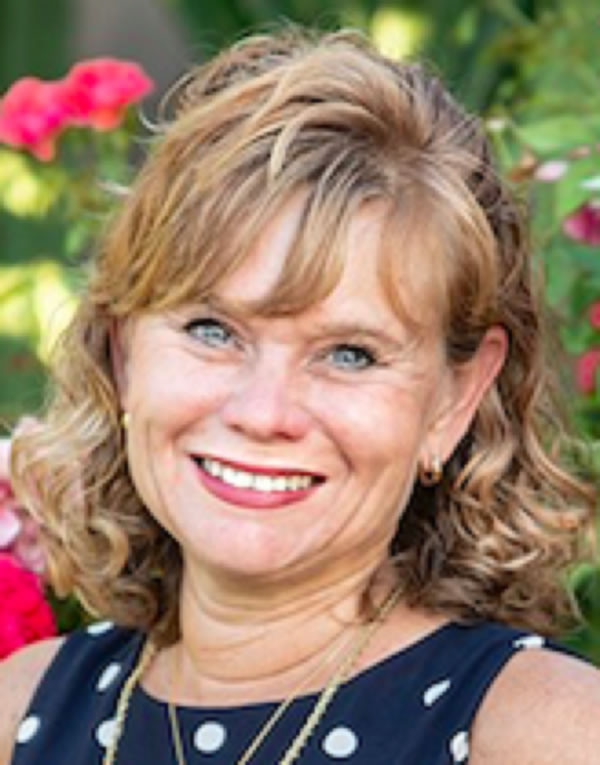
Senator Christine Marsh
Christine Marsh grew up in the Phoenix area and attended schools in the Scottsdale Unified School District, which is also where her two sons went to school, as well as some of her former foster children.
After earning her Bachelor of Arts in English Literature from UCLA, Christine returned home to Arizona and began her teaching and coaching career at Chaparral. She is currently in her 32nd year of teaching in public schools in Arizona.
She has a master’s degree from Grand Canyon University in Education Administration.
In 2016, Christine was named Arizona Teacher of the Year, an experience that provided her the opportunity to travel the state to see first-hand the issues faced by Arizona’s students and communities.
She is currently the ranking member on the Senate Education Committee and also serves on the Transportation and Technology Committee and the Natural Resources Committee. She continues to teach while serving in the State Senate.
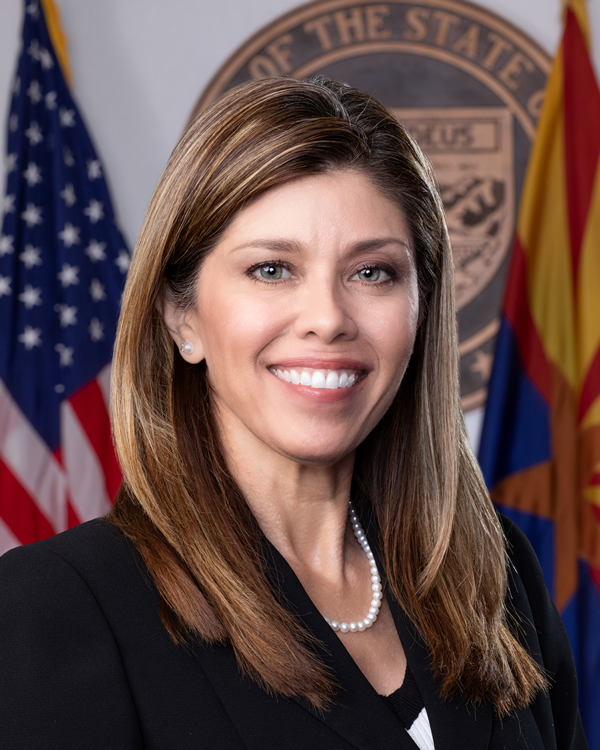
Senator Rebecca Rios
Rebecca Rios is the Senator for Arizona's District 27 and currently holds the position of Senate Democratic Leader for Arizona's 55th Legislature. First elected in 1995, Rebecca has served in both the House and Senate Chambers, and served in the leadership positions of Whip, Assistant Leader and Leader. She was the Democratic leader of the House of Representatives from 2016-2018 and is the first woman in the history of Arizona to hold that title. Rebecca lead a Democratic Caucus that was majority female, also a 1st in Arizona history.
Rebecca was born in Arizona to teenage parents. Her father, Pete Rios, was 1 of 14 children, and eventually became the first and only Latino President of the Arizona State Senate. Rebecca followed in her father's footsteps, dedicating her life to public service, first as a social worker and eventually as a politician. After working in a bureaucratic system that didn't adequately help children, Rebecca became motivated to run for office.
Rebecca has earned a number of recognitions and awards for her commitment to serving her community including the Valle Del Sol Humanitarian Award, and being recognized as an Arizona Latina Trailblazer. Rebecca holds a master's degree in Social Work from Arizona State University. Rebecca's proudest accomplishment to date is being Mom to her 3 children Diego, Milan and Vandon

State Senator Martín J. Quezada
State Senator Martín Quezada is widely considered one of the most passionate, reliable and impactful advocates for progressive values in the State Legislature. He is a product of AZ’s public schools and as a professional, he’s served as a judicial law clerk on the AZ Court of Appeals, a research analyst in the State Legislature, as an attorney, and teaching courses at the ASU College of Law. Senator Quezada’s has a long track record of community activism, serving in numerous volunteer roles. But Senator Quezada’s most impactful service has been as an elected official. He was elected to the Pendergast School Board in 2010 and was re-elected in 2014 and 2018. He was appointed to the AZ State House of Representatives in 2012 and was elected to that seat later that year. In 2014, he was elected to the AZ State Senate and was re-elected in 2016, 2018 and 2020 and now serves in Leadership as the Democratic Whip. Senator Quezada is now running a historic campaign to be the first Latino State Treasurer in AZ history.
Panelists Facilitator
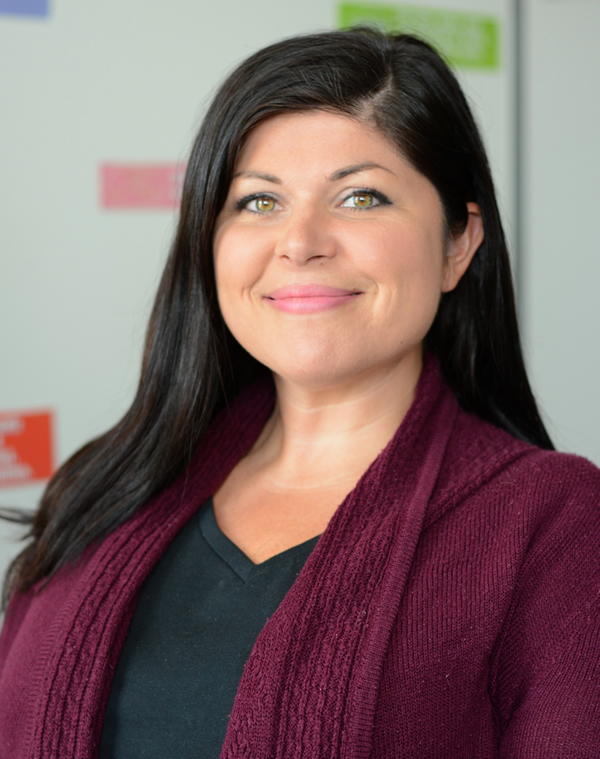
Beth Lewis
Beth is a mom, public education advocate, and K-12 policy expert who fights for a fully and equitably funded school for every Arizona child. As Director of Save Our Schools Arizona, Beth works to bring parents, educators, elected officials, business leaders, and community members together in support of Arizona’s public schools, which strengthen our communities and our great state. Beth has taught elementary and middle school in Arizona for 12 years and has been named a Rodel Exemplary teacher and Tempe Diablos Teacher of the Year Finalist. She holds a BA from the University of Notre Dame and a Master’s in Education from ASU. Reach out to Beth at beth@sosarizona.org
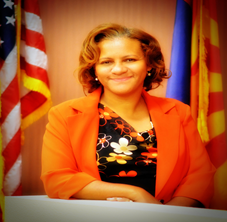
Raising the Bar: Elevating our Practices in Teaching and Learning
Dr. Felicia Durden, Associate Superintendent of High Academic Standards for Students
Dr. Durden will provide a high-level overview of the efforts of the High Academic Standards Division of the Arizona Department of Education. She will solicit feedback from participants to inform future work and priorities to ensure Arizona educators are informed and ready to provide their best for our amazing students.
Dr. Durden has over 20 years of experience in the field of education. Dr. Durden has taught grades K-12, served as an Assistant Director of Reading and Writing, School Principal, and currently serves as Associate Superintendent of High Academic Standards for the Arizona Department of Education. Dr. Durden has a passion for ensuring high levels of instruction are provided for all students.
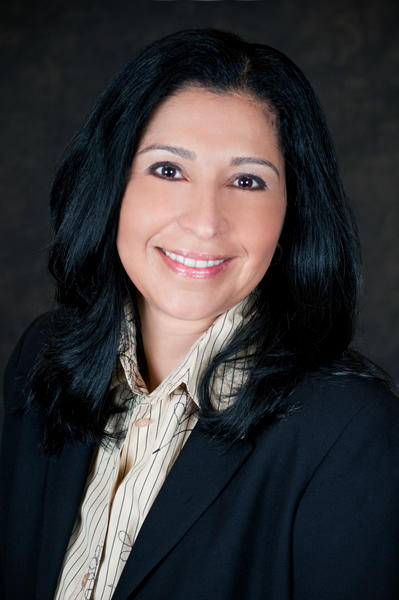
Educational Equity- It’s a Must!
Dr. Melissa Castillo, Associate Superintendent of Equity, Diversity, and Inclusion
Dr. Castillo will provide a high-level overview of the efforts of the Office of Equity, Diversity, and Inclusion and solicit feedback from participants to inform future work and priorities to ensure “Equity for all students to reach their full potential.”
With 30 years of experience in education as well as being a published author, Dr. Melissa Castillo is currently serving Arizona’s educators and students as the Associate Superintendent of Equity, Diversity, and Inclusion (EDI) at the Arizona Department of Education. Her professional career includes being a teacher in Dual Language and Bilingual programs, Instructional Coach, Professional Development Coordinator, Secondary Administrator, Curriculum Director, and Educational Lead Consultant for MelCast Educational Consulting. She is committed and passionate about her work with educators, administrators and community members across the state and country on planning and implementing asset-based systems and evidence-based instructional practices that meet the needs of all students. Her role as the Associate Superintendent of EDI is her most important to date, ensuring access and opportunity for all students to a high-quality Teaching and Learning environment.
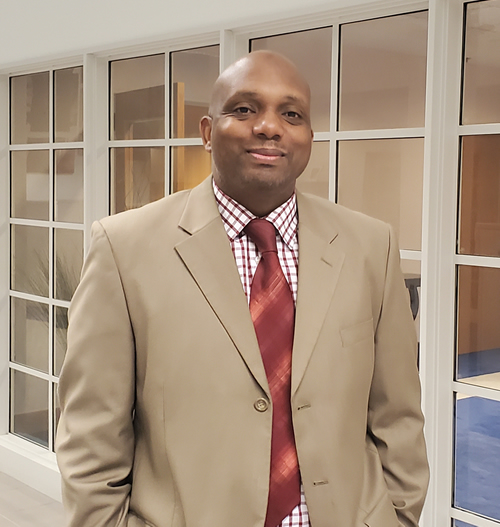
Equipping Leaders to Close the Achievement Gap While Conquering Poverty
Mr. Shawn Hurt
Do you feel pressure to close the achievement gap? The added layers of servicing students with disabilities, minority students, students living in poverty- all while in charters operating with limited resources makes this task seem impossible. This highly skilled turnaround specialist will demonstrate to participants how to achieve 1.50 years’ worth of growth for all students through implementing culturally responsive teaching strategies, facilitating data dialogs, planning purposeful professional development, and establishing sustainable partnerships.
Shawn Hurt is an educational consultant and School Turnaround Principal. He has been a Turnaround Specialist since 2011, and have impacted the education of over 5,200 students during his career. Shawn served as principal of Inkster Preparatory Academy, which was selected as a Model School for 2017 by the International Center for Leadership in Education. The Model School Conference is the nation’s premier event for rapidly improving K-12 schools and districts.
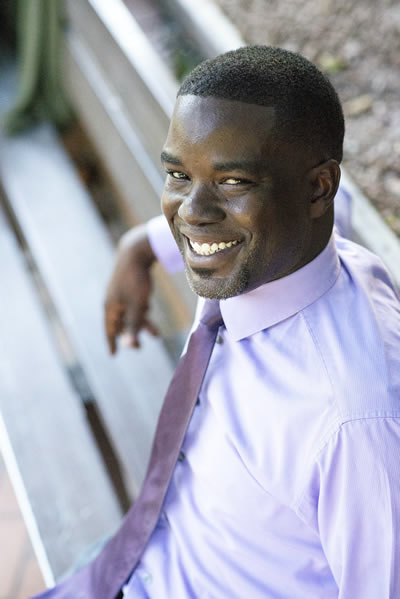
The Colored Recruitment and Retention Pipeline: A Reflexive Exercise on Best Practice
Centáe Richards, Ph.D. Associate Dean of Education & Professional Preparation at Prescott College
One of the major areas of concern in education, teaching, and learning is the glaring lack of diversity among licensed staff. Many educators already understand that in terms of recruitment, the national percentage of black teachers in the workforce has historically remained well below the percentage of students represented as black in the classroom since the desegregation of schools. Although minority student populations are growing at an exponential rate, the minority student-teacher ratio is still painfully low. Madkins (2018). Historical, socio-economic, and other compounding issues aggregate to paint a very dire picture for the black teacher pipeline, and the future of a diversified teaching workforce for many school districts nationwide.
In this workshop, participants such as future administrators, teachers, and current teacher leaders investigate the importance of allied collaboration, systems change theory, organization, and willpower required to cultivate a minority recruitment pipeline process to address systemic and historic concerns surrounding the issue of low recruitment and retention of minority educators.
An Afro-Caribbean epistemologist by trade with almost 20 years of experience, Dr. Richards has invited students and communities to probe deeper and tackle some of the most challenging issues in the education and the public sphere. Centáe Richards, Ph.D. is a dynamic public speaker and professional development facilitator in the fields of sociology and education for the benefit of social justice, agency, and personal growth for students in underserved and underprivileged factions of society. His current lines of work revolve around ethnographic representations of inner-city youth identities and their roles in the education system. His research agenda strives to understand how culturally responsive pedagogy can help play a role in the cognitive and social development of urban youth. Dr. Richards is currently exploring the collaborative manners in which adolescents use their ethnic and cultural identities in educational settings to create spaces of agency and alternative forms of learning that can inform and guide more traditional forms o curriculum in the classroom and beyond.
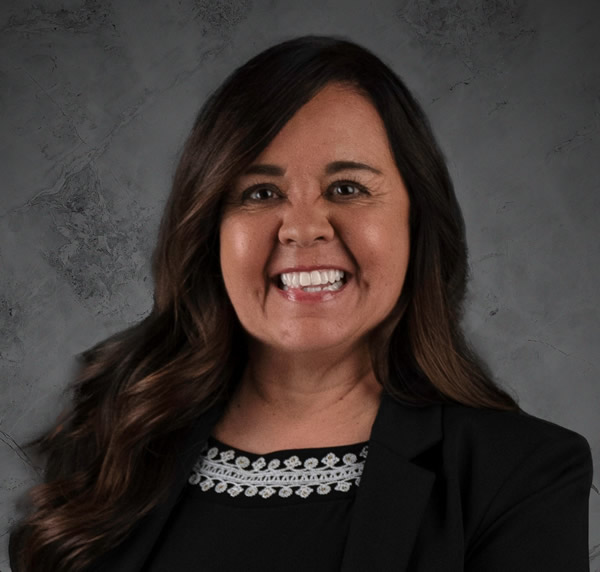
A Deep Dive into the Principalship
Dr. Teresa M. Hill, Deputy Director, Arizona Educational Foundation
According to the National Center for Education Statistics, in 2017-2018, only 3% of school principals in Arizona are African/non-Hispanic, and only 21% are Hispanic. This is hugely disproportionate of the ethnic distribution in Arizona schools, and these statistics show the dire need to increase the number of minority principals in Arizona schools. However, taking that step is not enough. Now more than ever, strong transformational leadership is needed in the principalship, and being a successful principal requires one to do all they can to prepare. This session will discuss why you should take the step into the principalship, what the elements of a strong principal are, and provide the roadmap to preparing for a successful principalship.
Dr. Teresa M. Hill has been an educator for 29 years. She taught math, dance, and was an administrator for 17 years. She opened Walden Grove High School and was the principal for eleven years. During her tenure as principal, the school climate and culture emanated a place where students and staff wanted to be. Some of the successes include receiving the 2017 AEF, A+ School of Excellence Award, nine state team championships, several individual state champions, superior ratings in band and drama, as well as a nationally recognized dance team. In 2019, she received her doctoral degree from Northern Arizona University, E. D. D. in Educational Leadership, and is currently a part-time professor at NAU. She has been awarded the 2008 Hispanic Sports and Academic Enrichment, Administrator of the Year, the 2013 Coaches for Charity, Signature Coach Award, the 2018 Arizona Music Educators Association, Outstanding Administrator Award, and most recently, the 2021 NASSP, Arizona Principal of the Year. She is currently the Deputy Director for the Arizona Educational Foundation.

